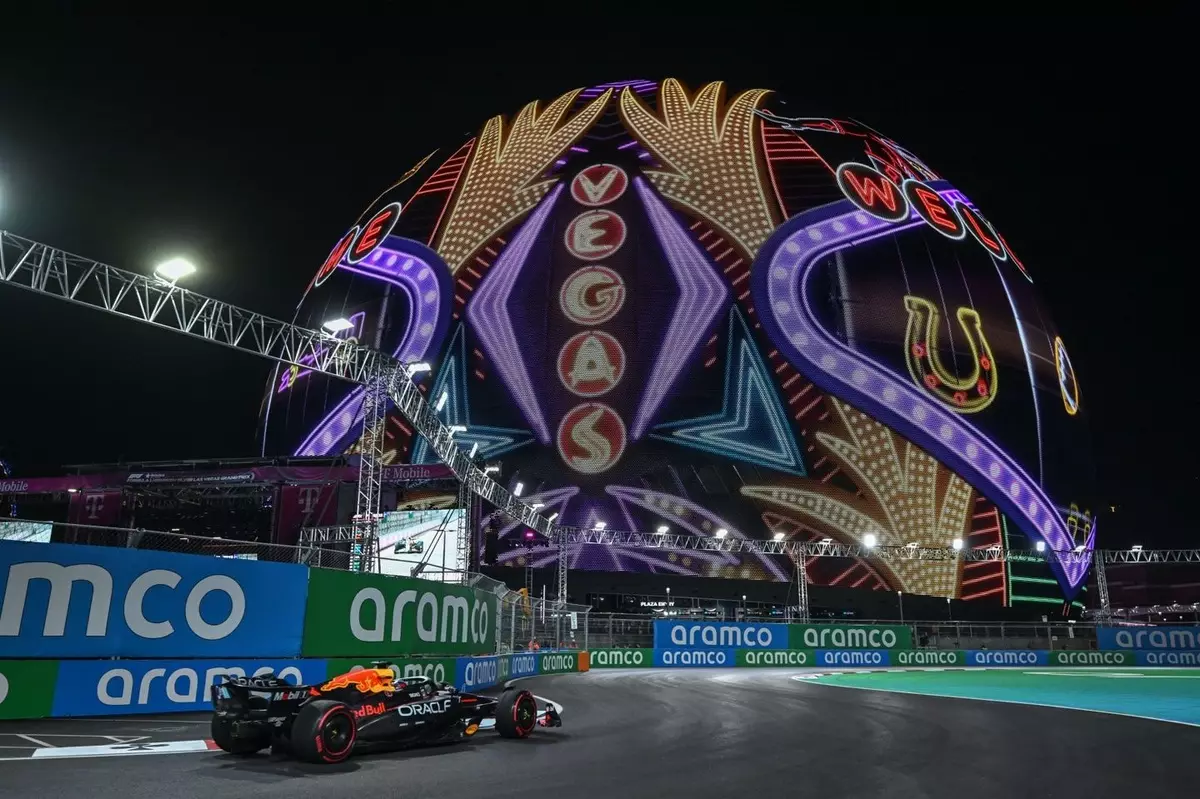The Las Vegas Grand Prix is poised for transformation as it tweaks its starting time for the 2025 Formula 1 season. The move to commence the race two hours earlier at 8 PM local time shifts the excitement to a more favorable schedule for a broader audience, particularly for U.S. viewers on the East Coast. This strategic adjustment marks a significant departure from the previous two editions, both of which began at the later hour of 10 PM. Such changes not only reflect a response to logistical considerations but also highlight F1’s intent to enhance viewer engagement and attendance at this flagship event.
The decision to advance the race start time comes from a necessity to better align with the increasingly diverse audience that Formula 1 caters to. The 2023 and 2024 events brought forth challenges, particularly concerning viewer experience, as races that began at 10 PM locally meant that fans across different time zones faced difficulty connecting with the live-action. By shifting to an 8 PM start time, the Las Vegas Grand Prix becomes more accessible for fans on the East Coast, alleviating the experience of waking up at the crack of dawn to catch the races.
Moreover, the relevance of timing is underscored in relation to advertising and viewership metrics, as broadcasters are often more inclined to cover events that promise a suitable audience window. This move appears to resonate with that strategy, with the aim of luring major media organizations to increase coverage across the United States. By making this change, F1 demonstrates its commitment to expanding its footprint in the lucrative U.S. market, where it seeks to solidify a lasting relationship with fans.
The Las Vegas Grand Prix is a resounding symbol of the revival of the sport in the United States. After a staggering 41 years away, its return in 2023 has been met with both enthusiasm and logistical challenges. The late start times in the initial races undoubtedly collided with the urban rhythms of Las Vegas, a city known for its nightlife and vibrant atmosphere. By adjusting the start time, race organizers not only reduce the challenge of closing down significant portions of the iconic Las Vegas Strip for extended hours, but they also provide a more cohesive experience for both spectators in attendance and those tuning in remotely.
The gradual alignment of race times with other night races like the Saudi Arabian and Jeddah rounds reflects a strategic coherence within the calendar. It shows a keen awareness of the operational challenges posed to the city of Las Vegas while still leveraging its unique nightlife allure as an advantage.
Looking ahead to the 2025 season, the scheduling shift in Las Vegas occurs against the backdrop of significant cultural considerations—most notably, the month of Ramadan, which affects Bahrain and Saudi Arabia’s race schedules. Such considerations are vital in planning a cohesive and respectful calendar. The shift illustrates the adaptability of the F1 framework in accommodating various global cultural elements while still prioritizing audience engagement and practicality.
The return of Australia as the traditional season opener, starting at a more viewer-friendly hour, contrasts with changes made for the Las Vegas race, helping to balance the global accessibility for fans worldwide.
The decision to modify the start time of the Las Vegas Grand Prix reflects a calculated effort to streamline the racing experience for fans, enhance broadcast opportunities, and integrate local cultural dynamics. Such adjustments are not made lightly; they stem from feedback and insights garnered through years of racing events. As F1 navigates its way through a new era of heightened audience awareness and involvement, the changes herald a promising future, not just for the Las Vegas Grand Prix, but also for the sport at large as it aims to resonate more profoundly with an ever-expanding global fanbase. The 2025 edition of the Las Vegas Grand Prix will undoubtedly be a spectacle marked by the thrill of racing and the deep engagement of fans, setting the stage for the years to come.


Leave a Reply